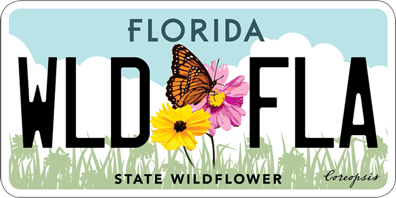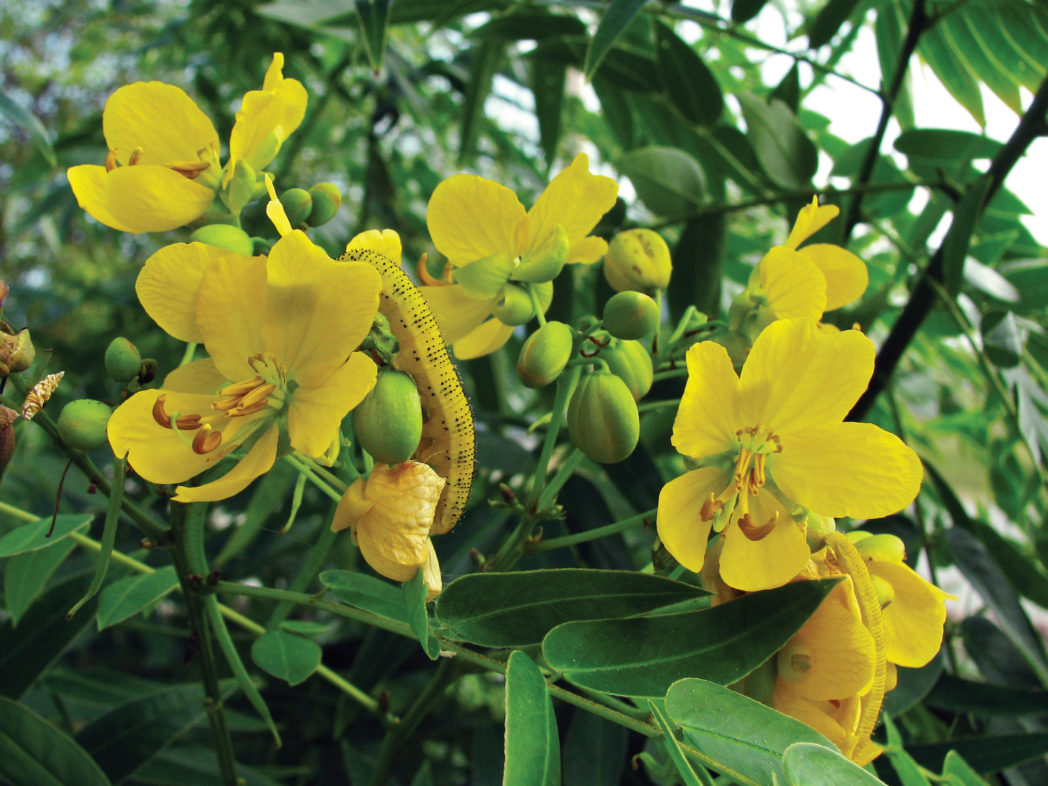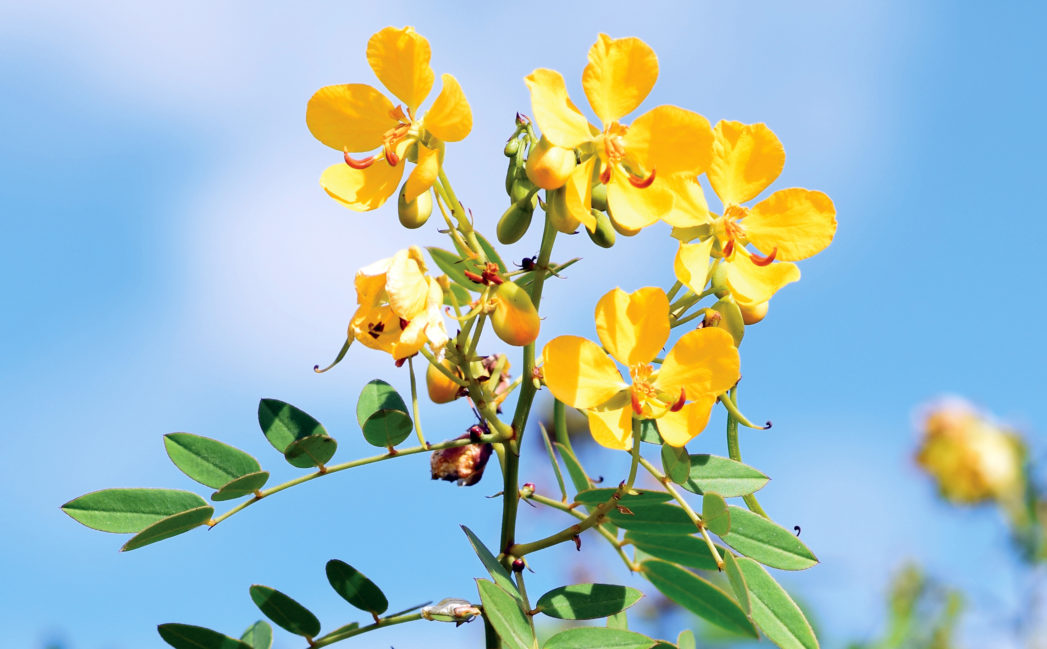Privet senna
Pictured above: Cloudless sulphur caterpillar on Privet senna (Senna ligustrina). Photo by Peg Urban. Click on the terms for botanical definitions. View post as a PDF.
Also known as Privet wild sensitive plant, Privet senna (Senna ligustrina) is an evergreen, perennial shrub that produces many 5-petaled, butter-yellow blooms. Its long, pinnately compound leaves are alternately arranged and comprised of numerous dark green, linear– to lanceolate-shaped leaflets. Its fruit is a thin bean pod, about 5 inches long, that turns a deep brown when ripe.
The flowers are mainly bee-pollinated, but privet senna is the larval host plant for the cloudless sulphur and sleepy orange butterflies. A gland at the leaf base attracts ants that kill the caterpillars.
Privet senna is a short-day plant, which means it requires a longer period of darkness to form its flowers. Thus it flowers early autumn through late spring when our nights are longer. It occurs naturally in hammocks and disturbed areas. All species of Senna are larval host plants for sulphur caterpillars.
The genus Senna, along with the genus Chamaecrista, were originally considered Cassia by Carl Linnaeus. DNA analyses, however, have since shown that all three genera are monophyletic, meaning they each descended from a single taxon. Despite this, the relationship between the three genera has not yet been resolved.
Family: Fabaceae (Legume, bean or pea family)
Native range: Gulf coast, south and southeast peninsula/coast
To see where natural populations of privet wild senna have been vouchered, visit florida.plantatlas.usf.edu.
Soil: Dry to slightly moist well-drained sand; can grow in nutrient-poor soils but does better with some organic content
Exposure: Full sun to light shade
Growth habit: 3–8′ tall, up to 6′ wide but usually taller than wide
Propagation: Seed
Florida regions of landscape suitability: North, Central, South
Garden tips: Privet senna is fast-growing, often reaching its full height in a single growing season. It is a prolific self-seeder and should be pruned to prevent an abundance of seedlings. It can also be somewhat unattractive when it becomes covered in its many large, brown seed pods. It is not salt-tolerant.
Privet senna plants are often available at nurseries that specialize in Florida native plants. Visit PlantRealFlorida.org to find a native nursery in your area.
Learn more about Privet senna from the Florida Native Plant Society and the Institute for Regional Conservation.
For more information on other Senna species, see these resources:


